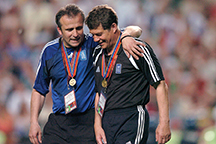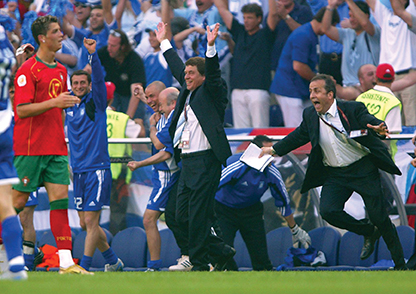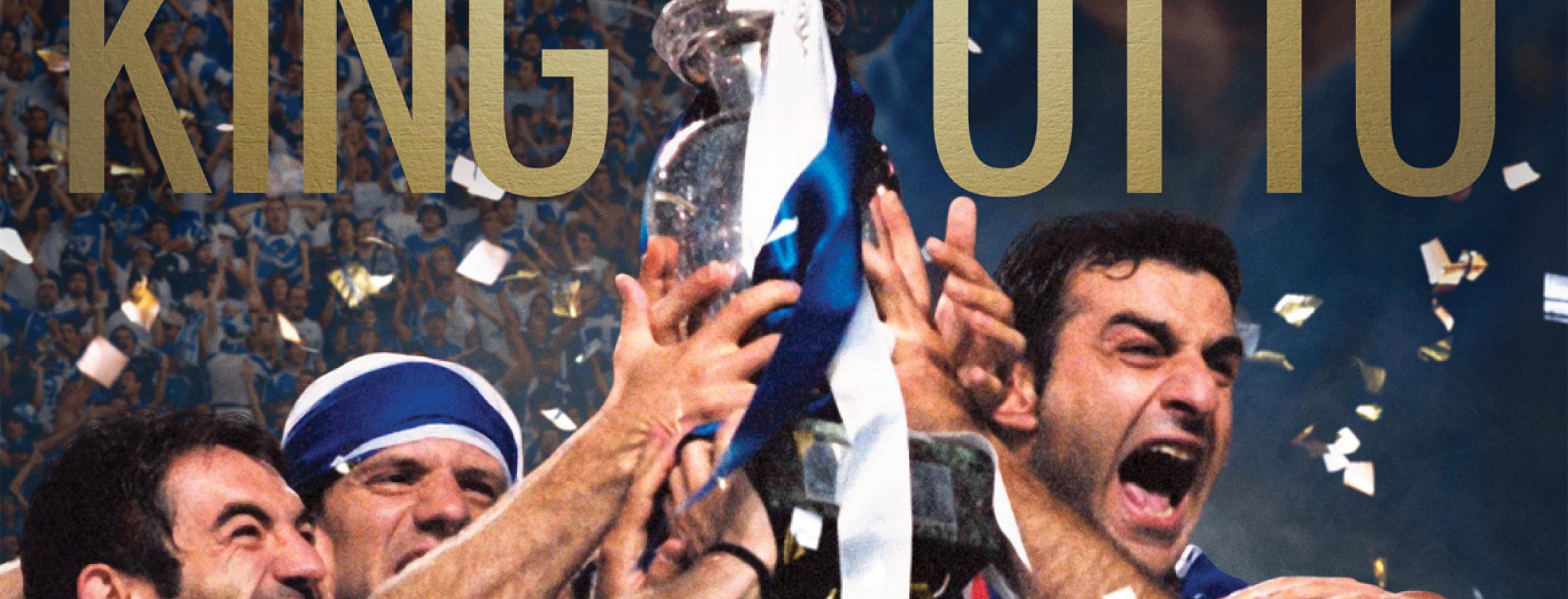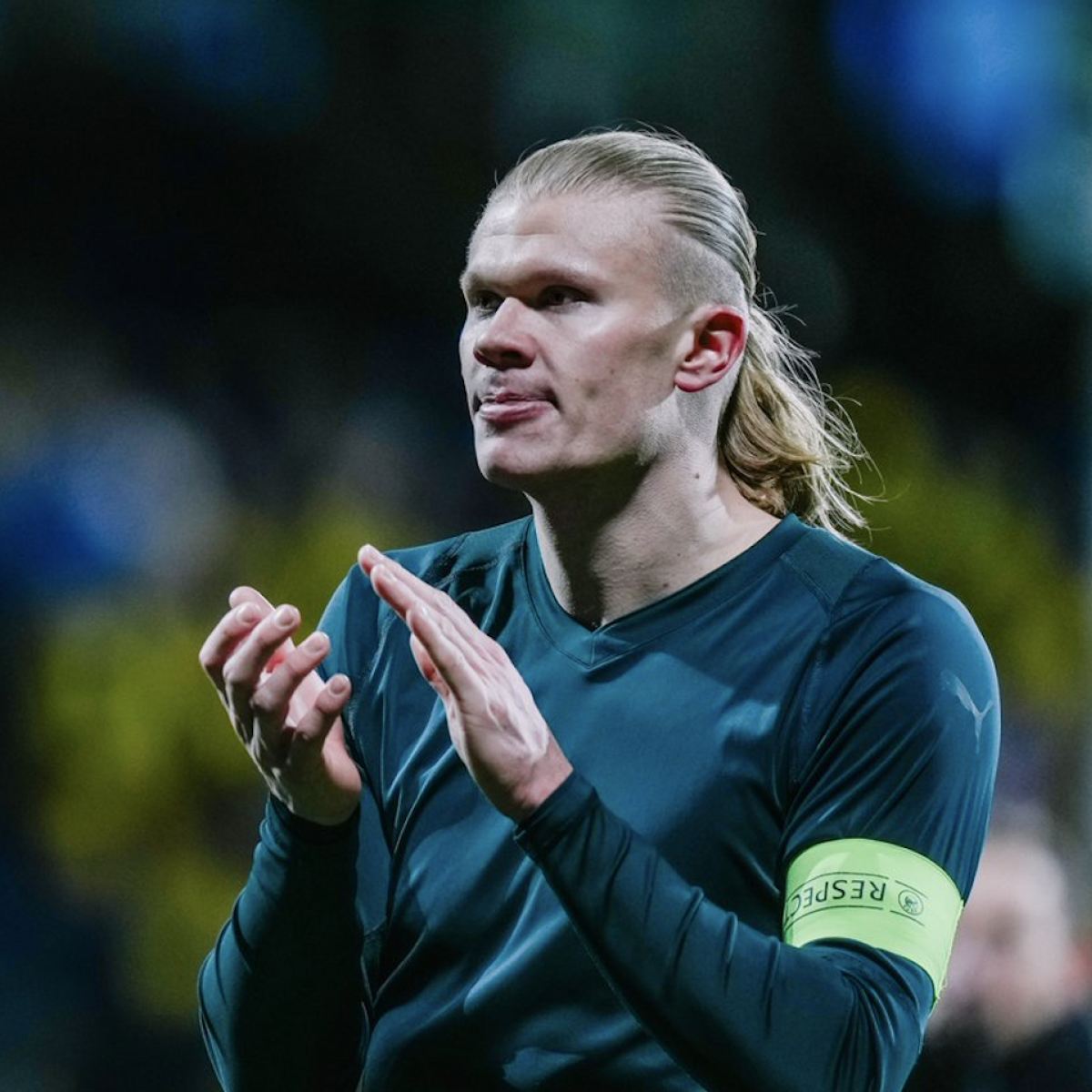King Otto, directed by Christopher André Marks, was released in select theaters and digitally (Amazon Prime Video, Apple TV, Vimeo, Vudu, etc.) on March 25, and we highly recommend it to anyone who has the slightest interest in Greece's incredible Euro 2004 triumph under the leadership of German manager Otto Rehhagel.
The approach of King Otto is straight forward. The story effectively begins with Rehhagel's appointment in August of 2001 and concludes with Greece's unlikely European Championship triumph in July of 2004.
Maybe there's more to be said of Rehhagel's 12-year playing career followed by an 18-year period spent as a manager exclusively in Germany (where he won both the Bundesliga and DFB-Pokal three times), because it really illuminates just how wild the decision was to take the Greece job at the age of 63. It's like Alex Ferguson leaving Manchester United and immediately taking Costa Rica to Gold Cup glory despite speaking zero Spanish.
But with the focus solely on this brief period in charge of Greece (Rehhagel actually led the team until 2010), we're given a new appreciation for many things and a better understanding of how Greece achieved its crowning glory in international football.
For example, how many people outside Greece knew the importance of assistant manager Ioannis Topalidis? Rehhagel spoke no Greek, so he hired Topalidis — a former player who had recently been an assistant at Hertha Berlin — to serve as his translator and right-hand man.
You get a wonderful appreciation for the two contrasting personalities during their time on screen, and it's funny listening to former players explain how Topalidis could've been saying whatever he wanted since no one understood a word from Rehhagel. Topalidis says he only made Rehhagel's instructions a little less blunt and more comforting for Greek ears, but Greece and Rehhagel would've been doomed without him.

There are fascinating moments from the start of Rehhagel's reign, including a terse press conference in which he says something along the lines of "it's great to be here; the Greece national team hasn't achieve anything," and then leaves the room.
You also see another side to that famous David Beckham Wembley free kick that sent England to the 2002 World Cup — it was scored against an already eliminated Greece team that was quickly showing signs of progress under Rehhagel.
And perhaps Europe should've known something was up when, after losing its first two games of qualifying for Euro 2004, Greece rattled off six straight wins, including a 1-0 victory over Spain in Zaragoza to qualify. That campaign has been lost to time but the documentary brings it roaring back to life, and the same could be said of its treatment of the tournament itself.
For those who criticize Greece's defensive tactics, Rehhagel has one definitive answer: "France. Czech Republic. Portugal. It couldn't be more impressive. There's nothing to criticize."
He has a point, and the film illustrates it with menacing images of a France side led by Thierry Henry and Zinedine Zidane and a criminally underrated Czech Republic squad (Rehhagel says it was the best team they played) with Pavel Nedvěd and Tomáš Rosický in midfield and Jan Koller and Milan Baroš up top.
Portugal and its home crowd are just as intimidating — the scenes from the final in Lisbon are stunning — but King Otto emphasizes just how badly Greece hurt them with an extra long shot of a disconsolate Cristiano Ronaldo after the final at the Estádio da Luz.

Now age 83, Rehhagel remains a commanding and impressive character on camera. There's a lot of pride in his accomplishments and career, but there's also a lot of humor and wisdom. As a native of Essen, Germany, who was born in 1938 and witnessed the heaviest air raid of World War II, Rehhagel has always been committed to establishing international links and common understanding.
"Greeks and Germans are different," he says, "but in the end, the only thing that matters is how we relate to each other."
The18 Review: 4/5




